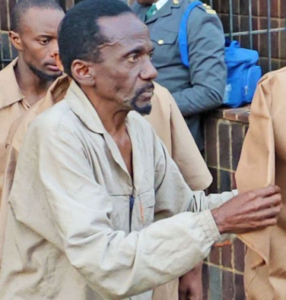INJUSTICE IN ZIMBABWE: MP JOANA MAMOMBE’S STRUGGLE

Joana Mamombe, a strong voice from Harare West for the opposition Citizens Coalition for Change (CCC), is at the center of a troubling story about politics and the judiciary in Zimbabwe. Mamombe was charged with organizing an anti-government protest during the strict Covid-19 lockdown in May 2020. Her case stands out, especially because her co-defendants, Cecilia Chimbiri and Netsai Marova, who faced the same charges, have been acquitted.
Mamombe, Chimbiri, and Marova were all arrested on May 26, 2020. They were charged with promoting public violence and breaking the peace. These charges were based on the Criminal Law (Codification and Reform) Act and the Public Health (Covid-19 Prevention, Containment and Treatment) (National Lockdown) Order. The three had criticized the government’s handling of food shortages during the lockdown, which caused widespread hunger and economic hardship.
This case, now over four years old, has raised concerns about the use of state power to suppress dissent in Zimbabwe. While Chimbiri and Marova were recently acquitted, Mamombe still faces trial starting July 9. This situation has led to questions about the fairness and consistency of the judiciary. Alec Muchadehama, the defense lawyer, called the ruling strange because Mamombe’s situation was the same as her co-defendants.
Joana Mamombe’s political career has been full of challenges and persecution. She was elected to parliament at 25 in 2018 and has been a target for her outspoken criticism of government policies. She has been arrested and detained many times. In 2019, she spent 68 days in pre-trial detention on treason charges. In 2020, she was abducted and tortured, which she says was done by state agents. She was later acquitted of publishing falsehoods about this abduction. These legal battles have not only affected her but also cost taxpayers.
Despite these hardships, Mamombe has remained dedicated to serving the public. She is the chair of the parliamentary Environment Committee, pushing for environmental protection and legislative changes. But her political future is now uncertain due to internal party conflicts and the controversial rise of Sengezo Tshabangu, who has taken on leadership roles with alleged support from the executive and security agencies.
Mamombe’s ongoing targeting raises serious questions about the rule of law in Zimbabwe. The selective justice – where an opposition figure is continually harassed and prosecuted while others in similar situations are acquitted – shows a judicial process that seems influenced by politics. This undermines democracy and erodes public trust in the institutions meant to ensure justice and equality.
As Mamombe’s trial approaches, the international community and local observers will be watching closely. The outcome will likely affect more than just Zimbabwe, serving as a measure of the state of human rights and judicial independence in the country. Meanwhile, Mamombe’s determination continues to inspire many who fight for justice and democratic values, highlighting the important role of the judiciary in protecting the principles of democratic societies.




It’s appalling to see such blatant bias in the judicial system. How can Mamombe still be on trial while her co-defendants are acquitted? This selective prosecution clearly shows how the judiciary is being used as a tool to silence opposition voices. Mamombe’s ongoing persecution is a stark reminder of how dissent is crushed in Zimbabwe. This case isn’t just about one individual; it’s about a government’s systematic attempt to intimidate and eliminate any form of opposition.
The rise of Sengezo Tshabangu, allegedly with executive and security support, reeks of political manipulation. It’s obvious that the government is strategically targeting opposition leaders like Mamombe to weaken their influence and control the political landscape.
The treatment of Mamombe, from her abduction and torture to her repeated arrests, is a clear violation of human rights. Zimbabwe’s government should be held accountable for these abuses and for undermining the democratic process.
Despite facing numerous challenges and legal battles, Joana Mamombe remains a strong and inspiring leader. Her dedication to serving the public and advocating for environmental protection is commendable.Mamombe’s determination and resilience in the face of persecution highlight the courage needed to stand up against oppressive regimes. She continues to be a beacon of hope for many who believe in justice and democracy.
The international community’s focus on Mamombe’s trial could bring much-needed scrutiny to Zimbabwe’s judicial system. This attention may help pressure the government to ensure fair treatment and uphold the rule of law.
Mnangagwa regime is worse than Ian Smith